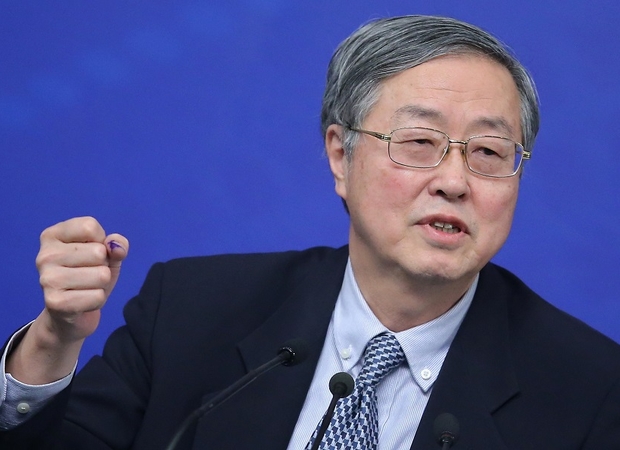What Happened to China’s Only Bitcoin ATM after Its Crackdown on Crypto
Four years ago, China got its first bitcoin ATM.
Four years ago, China got its first bitcoin ATM.
China also sees advantages in allowing crypto to develop in a manageable way...
Police in the north China city of Tianjin confiscated 600 computers used to mine bitcoin cryptocurrency after the local power grid operator reported abnormal electricity usage, Xinhua reported Wednesday.
Offshore platforms targeted after recent efforts to shut down domestic exchanges failed to eradicate trading.
China's crackdown on bitcoin has simply led to the trading going underground, according to a key player.
China is escalating its clampdown on cryptocurrency trading, targeting online platforms and mobile apps that offer exchange-like services, according to people familiar with the matter.
The most critical aspect about cryptocurrency for China to address is criminal activity.
As China’s crackdown on cryptocurrencies broadens to bitcoin miners, some of the industry’s biggest players are shifting operations overseas.
Chinese investors are still trading bitcoin and buying initial coin offerings, suggesting authorities in Beijing are struggling to clamp down on cryptocurrencies just weeks after announcing that public exchanges would be shut down.
With administrators personally liable for what is said on groups they run, users of bitcoin exchanges OKCoin, Huobi and BTCChina are migrating to services beyond the Chinese government’s reach.
Chinese authorities are ordering domestic bitcoin exchanges to shut down, delivering a heavy blow to once-thriving trading hubs that helped popularize the virtual currency pushing it to recent record highs.
Chinese regulators ordered a halt to all virtual currency trading platforms in the country, acting to further rein in risks related to cryptocurrencies, Caixin learned from a source close to regulators.

Included in this Depth of Field column are stories of love, community, remembrance, and the future, told through the discerning eyes of some of China’s best photojournalists. Among them, the lives of African migrants in Guangzhou, seven years...
Investors in the cryptocurrency say they doubt it is being used to transfer large amounts of cash out of China.
The value of the cryptocurrency bitcoin is melting down Thursday, having dropped 20% against the dollar by midday Eastern Time in only two hours of frantic trading.
China’s two biggest exchanges account for more than 90% of global trading.
Most trading in bitcoin takes place in China: Huobi and OKCoin, two Chinese exchanges, are thought to account for more than 90% of transactions.

Recently Zhou Xiaochuan, Governor of the People’s Bank of China (PBOC), China’s central bank, had an interview with Caixin and talked about the yuan exchange rate regime reform, macro-prudential policy framework, digital currency, and other...
Strong interest from Chinese speculators drove up global bitcoin prices last year to above $1,000, sparking a crackdown by the People's Bank of ...
The Chinese government has disseminated what amounts to a “confidential” policy governing the digital currency, which has led to uneven enforcement.
Bitcoin, a virtual stored-value system not regulated by any country or banking authority, has been a huge phenomenon this year and much of the action has been driven out of China.
The virtual currency’s decentralized and speculative nature, combined with the country’s experience with online currencies and “gold-mining” in the past are all cited as possible factors contributing to Bitcoin’s future take off in China.